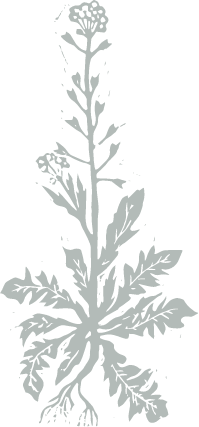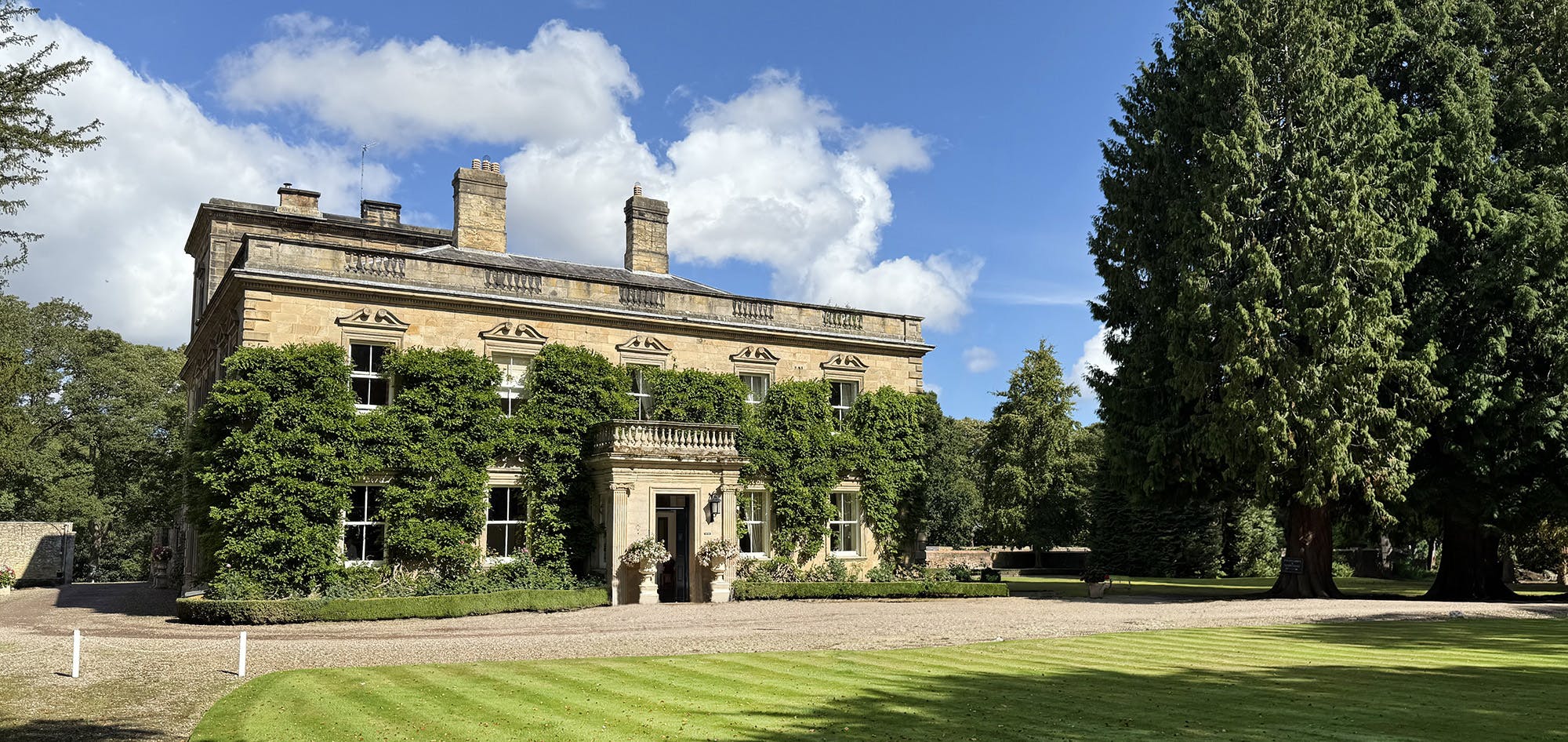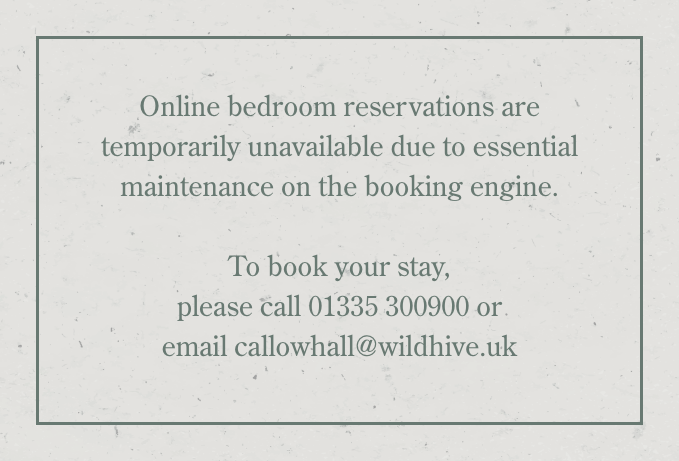Saturday 20th May
World Bee Day
The flower doesn't dream of the bee, it blossoms and the bee comes ?
<div>
<div dir="ltr">
<div>
<div>For World Bee Day we bring you news from the beehives at Wildhive Callow Hall and aim to raise awareness of the measures that can be taken to help protect bees and other pollinators.</div>
<div></div>
<div>At Wildhive, we do all we can to support native insects and ecosystems. We've rewilded 15 acres of meadow and planted three acres of wildflowers - as well as nurturing our own colony of bees in our hives. The hives provide honey for the kitchen and for the signature Bees Knees cocktail (recipe below).</div>
</div>
</div>
</div>

News from the beekeeper
<p>Our beekeeper, James, carefully manages the apiary at Wildhive and will be steadily increasing the hives so that the colonies on site will be able to produce all the honey that the hotel requires. In the meantime, James supplements Wildhive honey with Derbyshire honey which supports his bee-breeding. He genuinely cares about his bees and managing them ethically. Any honey the bees make that he can harvest is a bonus.</p>
<p>The honeybees at Wildhive are European honey bees (Apis mellifera). They are especially important for the biodiversity of the area as they are vital pollinators. They can effectively pollinate the whole area within a 2 mile radius of Callow Hall. Many of the native wildflowers and trees in the area would be unable to form seeds and reproduce without adequate insect pollination. In addition, they will help boost the yield of certain farm crops grown within a 2 mile radius of the hotel.</p>
<p>Wildhive Pure Honey is available in taster pots to purchase at Reception.</p>

Wildhive Bees Knees Cocktail
<p>Micky shares his recipe for Wildhive's signature cocktail, which changes with the seasons</p>
<ul>
<li>50ml Shining Cliff Gin (White Peak Distillery)</li>
<li>20ml lemon</li>
<li>15ml red berry honey syrup (Wildhive honey and fresh berries)</li>
<li>10ml orange juice</li>
</ul>
<p>Shake together with ice and strain.</p>
<p>Pour into a tumbler or coupe glass and garnish with flowers.</p>

Why bees are important
<p class="">Human activities pose an increasing threat to bees and other pollinators, including butterflies, bats, and hummingbirds. The survival of our ecosystems relies heavily on pollination, which is a fundamental process at all nature. Animal pollination is vital for nearly 90% of the world's wild flowering plant species, as well as over 75% of global food crops and 35% of agricultural land worldwide.</p>
<p class="">Pollinators not only contribute directly to food security but also play a key role in biodiversity conservation.</p>
<p class="">To emphasise the significance of pollinators, the United Nations has designated May 20th as World Bee Day, which aims to raise awareness about the crucial role of pollinators, the challenges they face, and their contribution to sustainable development.</p>
<p class="">Protecting bees and other pollinators is essential to address global food supply issues and alleviate hunger in developing nations. Strengthening measures focused on their preservation will significantly contribute to solving these problems.</p>
<p class="">We all rely on pollinators. It is therefore crucial to closely monitor their population and take whatever steps we can to prevent loss of biodiversity.</p>

How you can help
<ul>
<li>promote biodiversity by planting a variety of native plants that bloom at different times throughout the year</li>
<li>ensure bees have access to water; create a bee water fountain by leaving a water bowl outside</li>
<li>sponsor a hive</li>
<li>purchase raw honey direct from farmers/local producers</li>
<li>choose products from sustainable agricultural practices</li>
<li>refrain from using herbicides, pesticides or fungicides in our gardens</li>
<li>protect wild bee colonies and their natural habitats</li>
<li>sponsor a hive</li>
<li>wherever possible help protect wild bee colonies</li>
<li>support sustainable forest ecosystems</li>
<li>share this information with communities and networks to help raise awareness</li>
</ul>
<p><strong>30 Days Wild</strong> is The Wildlife Trusts' annual challenge where they ask everyone to do one wild thing a day throughout the month of June.</p>
<p>www.wildlifetrusts.org/30dayswild</p>






